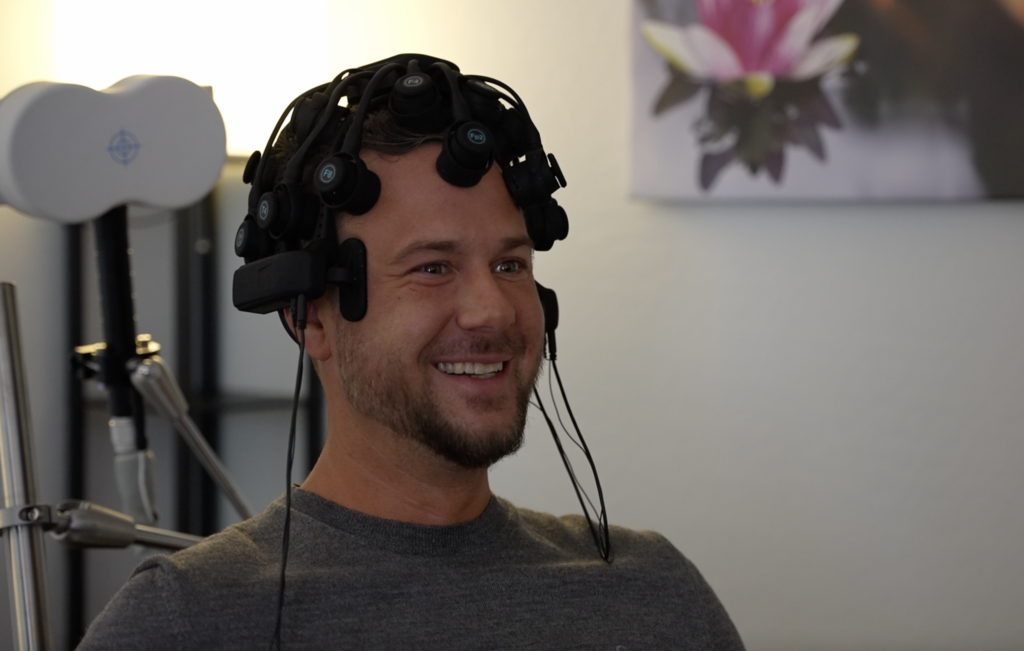Real TMS Therapy Reviews
If you’re looking for real-life stories about TMS Therapy, you’re in the right place. TMS, or Transcranial Magnetic Stimulation, is a treatment that helps people with depression feel better without using medication. Here, we feature four video TMS Therapy reviews and testimonials from patients who have undergone TMS therapy at American TMS Clinics and other clinics. They share their experiences and the positive changes they’ve seen in their lives.
What is TMS Therapy?
TMS therapy is a non-invasive treatment that helps manage depression by using magnetic fields to stimulate specific areas of the brain. Unlike traditional treatments, TMS does not require surgery or medication, making it a popular choice for those seeking alternative methods.
View Our TMS Therapy Testimonials
Here’s what our patients have to say about their experiences with TMS therapy:
Does TMS Therapy Actually Work?
Yes, TMS therapy has been shown to be effective for many people, especially those with depression who haven’t responded well to medications or other forms of therapy. Clinical studies and patient reports indicate that TMS can significantly reduce symptoms of depression, and for some, it may lead to complete remission.
What are the Downsides of TMS?
While TMS is safe and generally well-tolerated, there are some potential downsides. The most common side effects include headaches and discomfort at the site of stimulation. These effects are usually mild and tend to decrease over time. TMS requires frequent sessions (typically 5 days a week for 4-6 weeks), which can be time-consuming. Additionally, because it’s a relatively new treatment, it may not be covered by all insurance plans, which could make it costly for some patients.
What is the Success Rate of TMS Therapy?
The success rate of TMS therapy varies, but studies generally report that about 50-60% of people with treatment-resistant depression experience a significant reduction in symptoms after TMS. About one-third of these individuals may achieve full remission of their symptoms. However, outcomes can vary based on individual factors, including the severity and duration of depression.
Is TMS Worth the Cost?
For many patients, TMS is worth the cost, particularly for those who have tried and not responded to other treatments. Although the initial cost can be high, the potential benefits of improved mental health and functionality can justify the expense. Additionally, more insurance companies are starting to cover TMS, which can help reduce the out-of-pocket costs.
Who Should Avoid TMS Treatment?
TMS is not suitable for everyone. Individuals with metal implants in their head (excluding dental fillings) or who have medical devices like pacemakers or cochlear implants should avoid TMS due to the magnetic fields used during treatment. It is also generally not recommended for individuals with epilepsy or other neurological conditions that could be exacerbated by magnetic stimulation.
Is TMS a Last Resort?
TMS is often considered when other treatments for depression have not worked. However, it doesn’t necessarily have to be a last resort. Some medical professionals and patients opt for TMS as a preferable alternative to invasive treatments like electroconvulsive therapy (ECT) or when the side effects of medications are intolerable. As understanding and acceptance of TMS grow, it is increasingly considered earlier in the treatment process for some patients.

Do You Want To Feel Better?
Are you wondering if TMS therapy could help you? Contact American TMS Clinics today to see if you qualify for a free EEG and psychiatric evaluation. Don’t wait any longer to start feeling better. Call us or visit our website to learn more about how we can help you on your journey to recovery.
